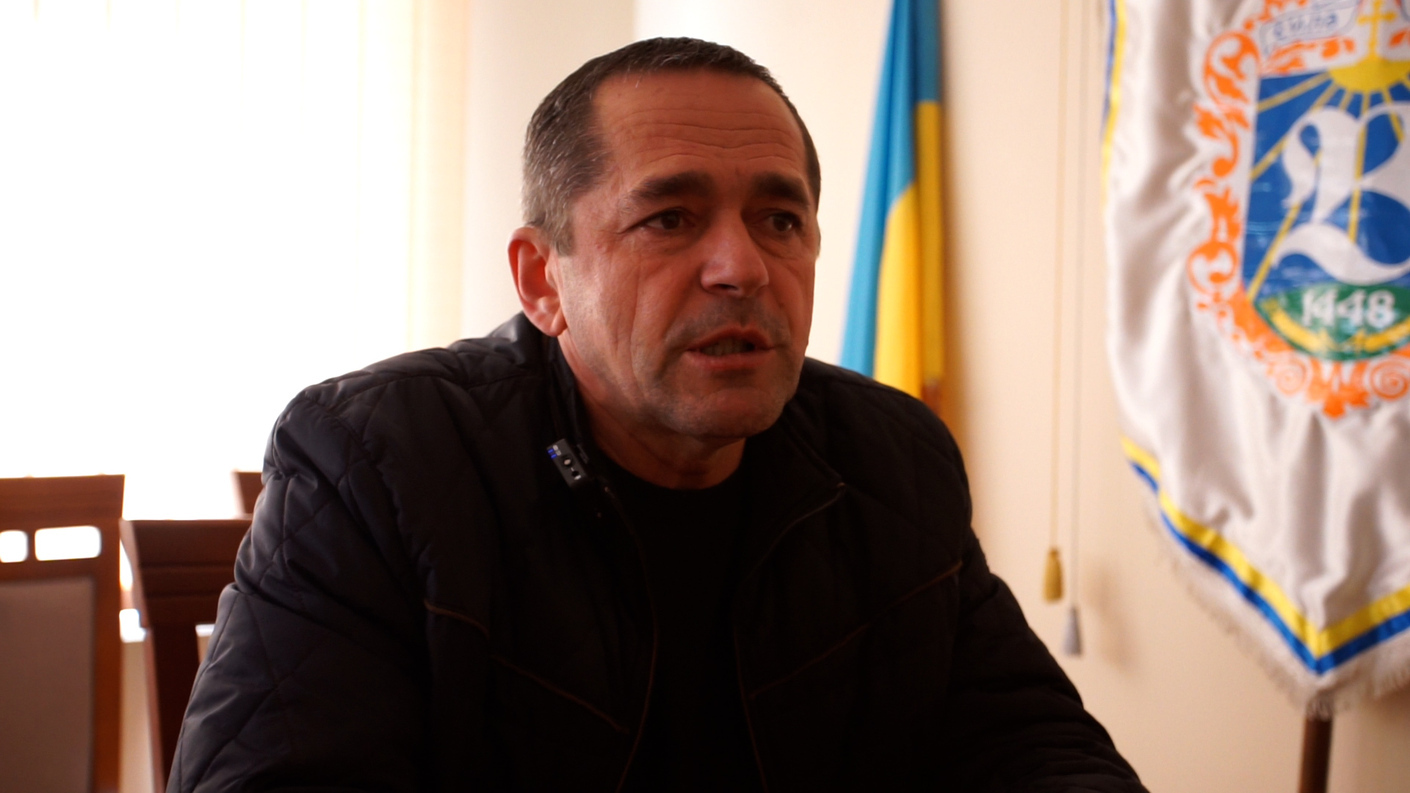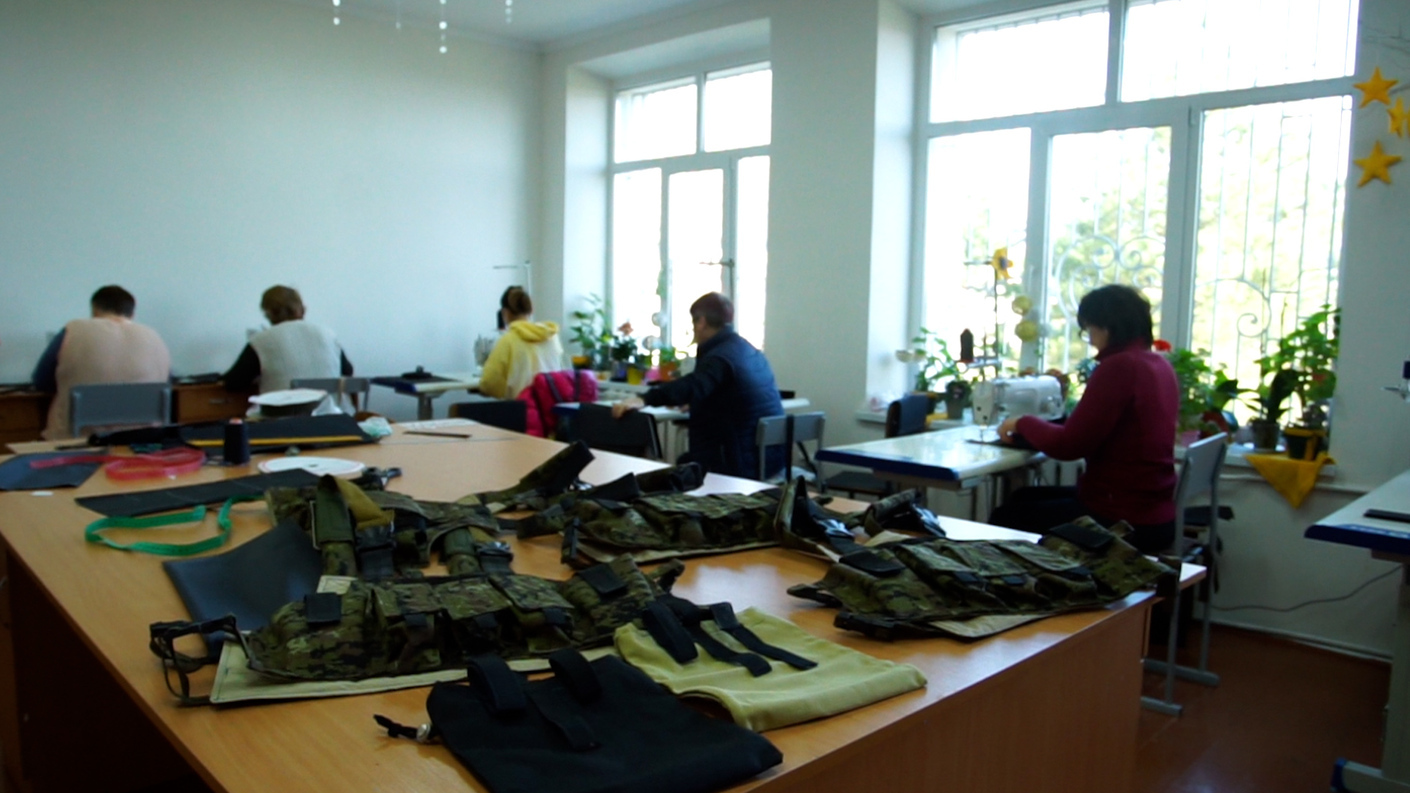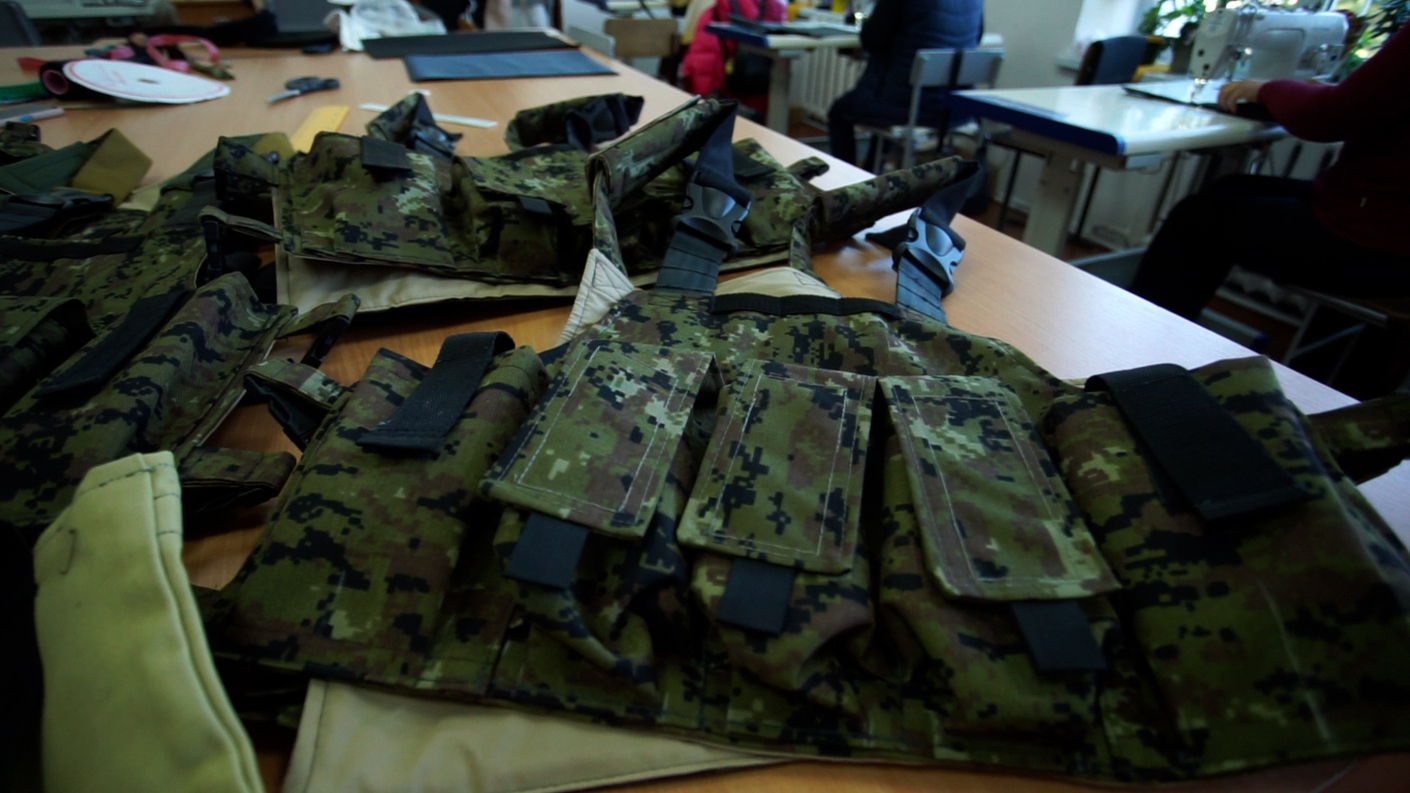How Verkhnyanska hromada ramps up Ukraine’s efforts toward victory
Reporting by Bohdana Tymchyshyn, journalist, Oksana Huzynets-Mudryk, journalist and Oleksandr Zaliskyi, director of photography
Small rural hromadas actively contribute to Ukraine’s resistance efforts against Russia’s aggression. Among them is Verkhnyanska hromada, a community of about 10 thousand people that embraces 12 villages in the Kaluskyi rayon of Ivano-Frankivsk region.
Hromada villagers shelter internally displaced Ukrainians. They organized a volunteer center to supply the Ukrainian Armed Forces and help civilians affected by Russia’s onslaught. Also, the hromada set up a sewing workshop to produce load bearing vests for the Ukrainian troops.
Farmers to sow 70 hectares of vacant fields in response to food safety call
On the first day of Russia’s full-scale invasion, residents of Verkhnyanska hromada joined efforts to supply the Ukrainian army, village head Mykhailo Maliborskyi said. In the first week of war, the hromada set up an outdoor air raid warning system in the villages. They used old cable wires. Hromada’s residents staying abroad bought and sent in loudspeakers. The villagers completed works on their own. A majority of the villages now have outdoor warning sirens. They will continue to serve the community once the war is over, Mykhailo Maliborskyi said. Starostas will disseminate announcements through the sirens. People will play music through loud speakers on festive occasions. The villagers equipped three bomb shelters of the Verkhnyanska hromada with generators, drinking water storage tanks, benches, and supplied them with critical necessities. Yet the villagers do not rely on bomb shelters as much as urban residents do, as they mostly hide in the basements of their homes. As everywhere in the west of Ukraine, villages of Verkhnyanska hromada shelter Ukrainians who fled the war. More than 500 people resettled to the hromada. Most of them stay with local families. A family of six from Kharkiv shelters in a school that was converted into a shelter. The hromada serves them free meals three times a day.

Most of the displaced in Verkhnyanska hromada are from war-torn areas of Ukraine including the cities of Sumy, Kharkiv, Kyiv, and Bucha, Mykhailo Maliborskyi said. While some began to return home, an overwhelming majority stay in the hromada.
Same as everywhere else in the country, hromada villagers joined the volunteer efforts to supply the army. Ukrainians who resettled into the community also contribute. Hromada set up a volunteer headquarters. Community residents who earlier left the country send in humanitarian assistance from abroad. The villagers bring food. The aid is sorted and sent to the military in the front lines and to civilians in affected areas. Excess food and clothing were redistributed to the internally displaced, the village head said.
Verkhnyanska hromada contributes to achieving a national goal to increase the sowing area and ensure food safety. The village head ordered to use free communal land, and the village council approved the decision. The land commission of the village council invited local farmers. They agreed to rent out vacant land and sow crops. This year, they plan to sow up to 70 more hectares.
Workshop in Verkhnya makes load bearing vests for military
Since early days of war, the demand for load bearing vests has been high, Mykhailo Maliborskyi said. In early March, Verkhnyanska hromada set up a sewing workshop to produce vests for the Ukrainian troops.

The hromada uses best sewing machines to produce load bearing vests and dump pouches. The villagers used donations to buy four more sewing machines and open another workshop. They also bought the fabric and sewing accessories including buckles and Velcro fasteners, Mykhailo Maliborskyi said. The village council and a local entrepreneur split the costs.
Women from Verkhnya village work in the sewing workshop. Two more people from neighboring village come to help them. As of April 11, the hromada produced 263 load bearing vests and 200 dump pouches, and sent them to the front lines. They have supplied community residents drafted to fight.
As the demand remains high, the sewing workshop continues to work intensely. Availability of the fabric and accessories is key.

Volunteer headquarters sends to front lines more than 1,000 aid kits for military
Verkhnyanska hromada set up a volunteer headquarters on the third day of war as the community residents started sending assistance from abroad. Three minivans brought aid from Spain. Over time, more aid came from Poland, the Czech Republic, Portugal, and other EU countries. At times, volunteers would pick up humanitarian assistance from abroad at the border.
Hromada’s residents bring home-made pickles to help supply the military and civilians in affected areas. Local entrepreneurs donate food and even cigarettes.
The village council provided the premises and fuel. It helps clear customs for humanitarian aid. The hromada purchased generators, chainsaws, shovels etc. from the local budget for front line needs.
“We tried to send our service members everything they ask for. We used funds from the local budget and donations,” the village head said.
The volunteer headquarters gets food, medicine, and hygiene items. The service members on the front lines make assistance requests. The villagers sort and pack the assistance from the morning till night. School pupils, students, and internally displaced have an active role in that.
The volunteers form individual packs for the military. That is more convenient, they say. The kits include food, hygiene items, and critical necessities. The hromada has sent more than 1,000 kits to the front lines. The volunteer headquarters also sent 130 packs of food to civilians in areas that were retaken from the Russian forces.
The volunteers send medicines to front-line hospitals. The hromada sent two armored vehicles donated from abroad to the front lines. Previously they were in use to transport valuables to banks. The community also sent three all-wheel drive vehicles to Ukrainian service members.
Tags:
war stories war food security story
Область:
Івано-Франківська областьГромади:
Верхнянська територіальна громадаSource:
Програма DOBRE
13 January 2025
Актуальні питання складання розпорядниками...
На початку нового 2025 бюджетного року розпорядники коштів місцевих бюджетів традиційно складатимуть річну фінансову...
13 January 2025
Національний проєкт «Пліч-о-пліч»: Василівська...
Загальнонаціональний проєкт «Пліч-о-пліч: згуртовані громади» об’єднав Василівку та Хотин. Керівники міських громад...
13 January 2025
Долучайтеся до опитування щодо пріоритетних законопроєктів з децентралізації
Долучайтеся до опитування щодо пріоритетних...
Опитування проводить Київський міжнародний інститут соціології на замовлення громадської організації «ДЕСПРО» за...
10 January 2025
Олексій Кулеба очолив Координаційний центр із...
Віцепрем’єр-міністр з відновлення України – Міністр розвитку громад та територій України Олексій Кулеба очолив...